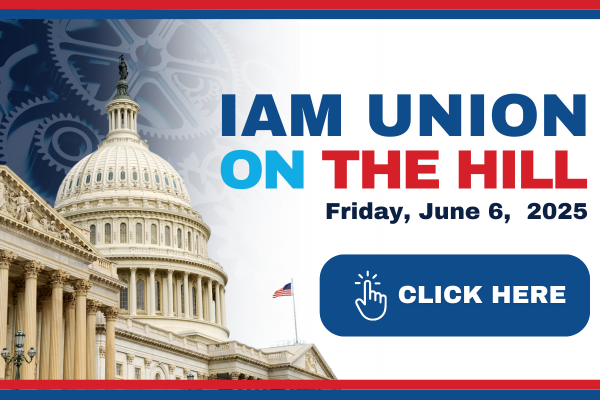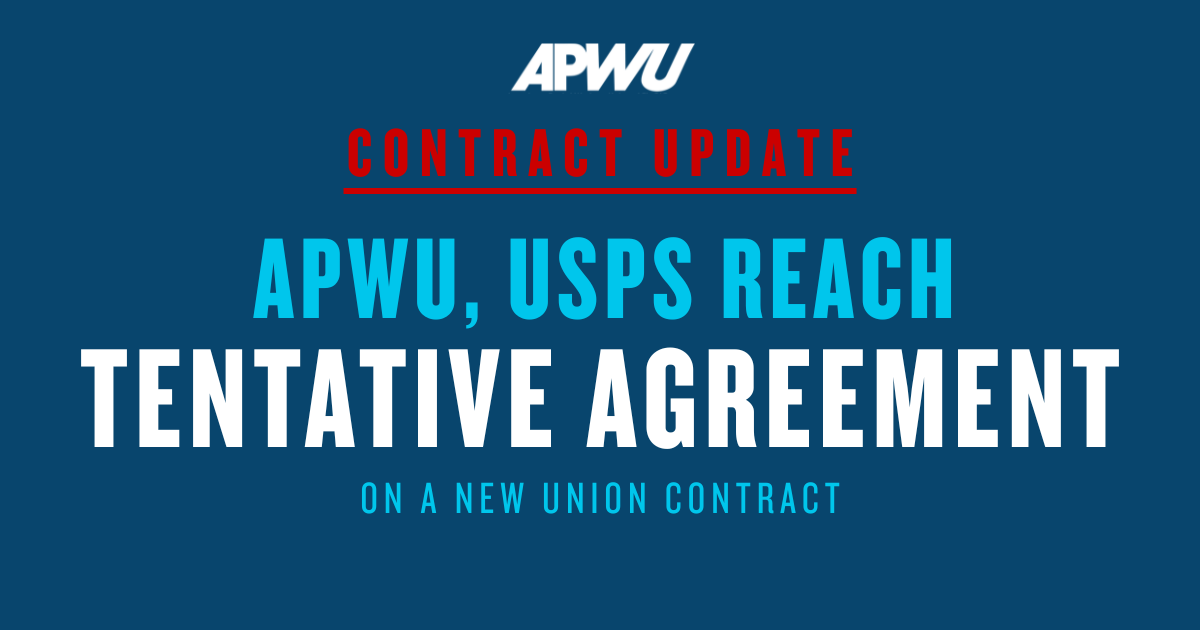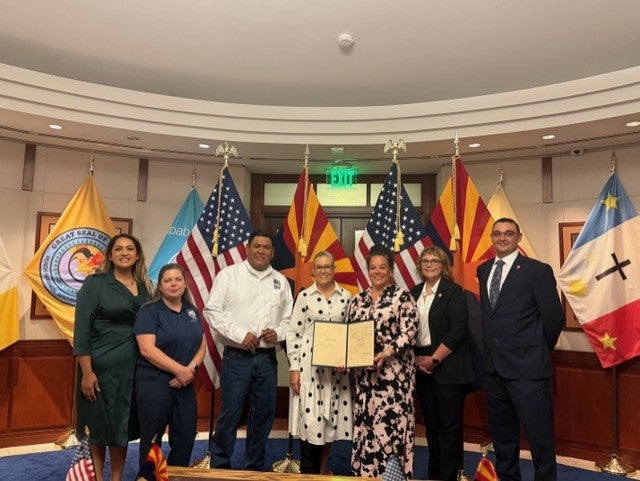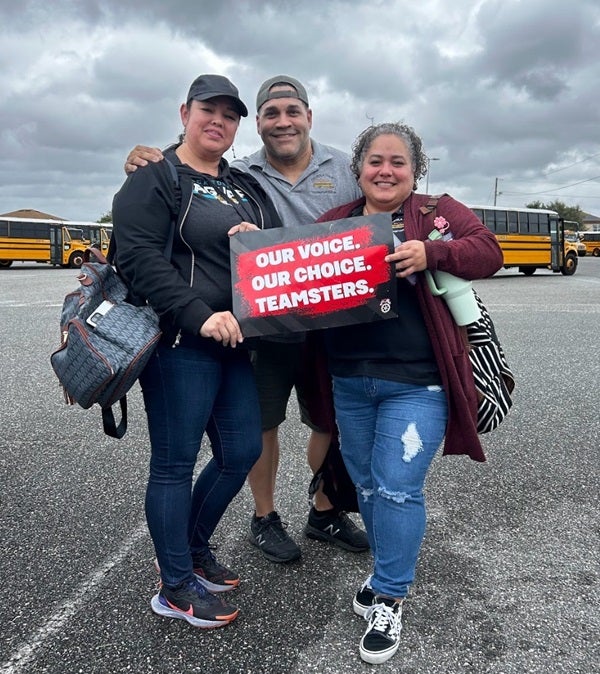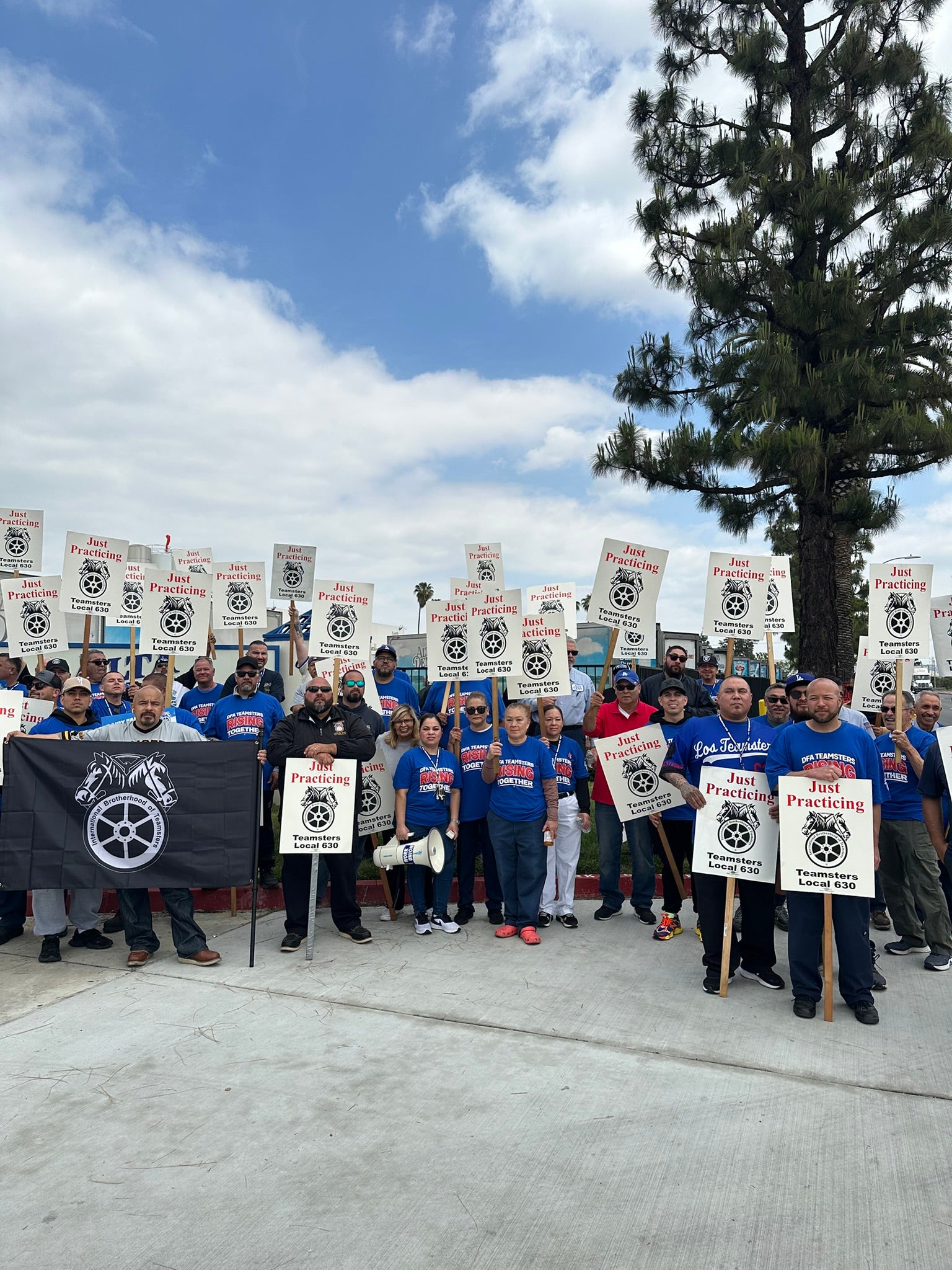IAM Union, Allies Rally for Release of Wrongfully Detained Member Maximo Londonio
IAM Union leadership and members joined community advocates and immigrant rights organizations in a rally outside the Northwest ICE Processing Center in Tacoma Wash., demanding the immediate release of Maximo Londonio, a longtime IAM Local 695 (District 160) member who is being wrongfully detained by U.S. Immigration and Customs Enforcement (ICE). Londonio, a lead forklift The post IAM Union, Allies Rally for Release of Wrongfully Detained Member Maximo Londonio appeared first on IAM Union.Continue reading→
APWU NSB 05-2025 APWU-USPS Reach Tentative Agreement
https://d1ocufyfjsc14h.cloudfront.net/sites/default/files/nsb_05-2025_tentative_agreement.pdfAPWU NSB 05-2025 APWU-USPS Reach Tentative AgreementContinue reading→
APWU NSB 04-2025 Congress Moves to Gut Postal and Federal Pensions
https://d1ocufyfjsc14h.cloudfront.net/sites/default/files/nsb_04-2025_congress_moves_to_gut_postal_and_federal_pensions.pdfAPWU NSB 04-2025 Congress Moves to Gut Postal and Federal PensionsContinue reading→
✈️ IAM UNION ON THE HILL: Pratt & Whitney strike ends — F-35 engine boost — Job Corps program threat
Click Here to view this edition of IAM UNION on the Hill. The post ✈️ IAM UNION ON THE HILL: Pratt & Whitney strike ends — F-35 engine boost — Job Corps program threat appeared first on IAM Union.Continue reading→
Big News!! APWU, USPS Reach Tentative Agreement on New Union Contract!
June 6, 2025The American Postal Workers Union and the U.S. Postal Service have reached a tentative Collective Bargaining Agreement (CBA), announced APWU President and Lead Negotiator Mark Dimondstein. The proposed union contract is three years in duration: September 21, 2024, through September 20, 2027. ContractContract NegotiationsIndustrial RelationsClerk Division Maintenance DivisionMVS Division The American Postal Workers Union and the U.S. Postal Service have reached a tentative Collective Bargaining Agreement (CBA), announced APWU President and Lead Negotiator Mark Dimondstein. The proposed union contract is three years in duration: September 21, 2024, through September 20, 2027. The Tentative Agreement was finalized on June 2, 2025. In accordance with the APWU Constitution, it was presented by the National Negotiating Committee to the Rank and File Bargaining Advisory Committee on June 4. The Rank and File committee unanimously approved the Tentative Agreement for a ratification vote of the members. The Tentative Agreement has the unanimous approval of the National Negotiating Committee and the full support of the National Executive Board. “This is great news for postal workers! Negotiations are never easy and have been hard fought. We have secured an agreement that continues to protect the rights and interests of our members in uncertain times,” said APWU President Mark Dimondstein. “We have been negotiating when governement workers and our unions are under severe assault and with the specter of postal privatization looming. Yet even in this environment, the Tentative National Agreement contains annual wage increases, six full cost-of-living adjustments for career employees, no-layoff protections including for tens of thousands of members with less than six years’ service, 50-mile limits on excessing, elimination of some entry level steps, restoration of one more top step in pay grades 4-7 on the lower tier pay scale, increase in uniform allowances, and much more. All these gains were accomplished with no givebacks or concessions. A “Yes Vote” will secure the provisions and advances of the Tentative Agreement.” (See summary below) Along with President Dimondstein, the National Negotiating Committee consists of Industrial Relations Director Charlie Cash, who served as chief spokesperson for the union, Executive Vice President Debby Szeredy, Secretary-Treasurer Elizabeth “Liz” Powell, Clerk Division Director Lamont Brooks, Maintenance Division Director Idowu Balogun, Motor Vehicle Service Director Michael Foster, and Support Services Director Arrion Brown. “On behalf of our members, I appreciate the hard work and diligence of the Rank and File Bargaining Advisory Committee,” said Dimondstein. “We also recognize and appreciate all the officers and our staff for their important contributions made during these negotiations. Congratulations to every member for staying union strong and engaging in our “Union Proud, Say It Loud!” campaign for a good contract.” “I am excited that the membership will have the opportunity to vote yes on this tentative agreement, which not only will deliver guaranteed paid increases, but offers the needed protections and improvements for our members in all the APWU crafts as attacks on working people and unions are coming faster than ever,” said Industrial Relations Director Charlie Cash. The APWU is now preparing a mailing to every member’s home to include a ballot and voting instructions and information on the Tentative Agreement. It is expected that the American Arbitration Association will begin mailing ballots by June 16, 2025, with a return deadline of Thursday July 10, 2025. More details on the ratification process will be forthcoming. The APWU encourages every member to vote and be heard for our union contract determines the wages, benefits and working conditions. Tentative Agreement SummaryContinue reading→
Tentative Agreement Summary
https://apwu.org/tasummaryTentative Agreement SummaryContinue reading→
Important Update for UAW Stellantis Members from Director Kevin Gotinsky
UAW Stellantis Members, After the previous Stellantis leadership pursued a misguided race-to-the-bottom strategy—leading to plummeting sales and thousands of layoffs—the company is now working to regain its footing. The board has appointed Antonio Filosa, former head of North American operations, as the new CEO. UAW leadership will continue to meet with Filosa to push for […] The post Important Update for UAW Stellantis Members from Director Kevin Gotinsky appeared first on UAW | United Automobile, Aerospace and Agricultural Implement Workers of America.Continue reading→
Arizona Passes Teamsters-Backed Rail Safety Legislation
(PHOENIX) – Following a months-long, collaborative, and intense lobbying effort, Teamsters Local 104 and the...Continue reading→
IAM District 5 Volunteers Unite to Fight Hunger at Great Plains Food Bank
IAM District 5, along with 12 members from Locals 2525, W33, and W384 recently organized and performed their second IAM H.E.L.P.S event for 2025 at the Great Plains Food Bank (GPFB) in Fargo, N.D. The local food bank is a vital organization committed to fighting hunger by collecting, warehousing, and distributing surplus food to those The post IAM District 5 Volunteers Unite to Fight Hunger at Great Plains Food Bank appeared first on IAM Union.Continue reading→
Richard Dees Appointed Educational Representative at Winpisinger Center
International President Brian Bryant has appointed Richard Dees from District 725 as an Educational Representative at the IAM’s William W. Winpisinger Education and Technology Center in Hollywood, MD, effective June 1, 2025. “I’m confident in assigning Richard to the Winpisinger Center,” said Bryant. “He brings extensive knowledge and experience to this new role, and will The post Richard Dees Appointed Educational Representative at Winpisinger Center appeared first on IAM Union.Continue reading→
Osceola School District Workers Vote Overwhelmingly to Remain Teamsters
(TALLAHASSEE, Fla.) – Workers with the Osceola School District resoundingly elected to keep their membership...Continue reading→
UAW President Shawn Fain Rallies with Detroit Members Behind Rev. Kinloch for Detroit Mayor
UAW members from Detroit will rally with President Shawn Fain and Rev. Solomon Kinloch—the union’s endorsed candidate for mayor and a former UAW Local 235 member—on Saturday, June 7. The post UAW President Shawn Fain Rallies with Detroit Members Behind Rev. Kinloch for Detroit Mayor appeared first on UAW | United Automobile, Aerospace and Agricultural Implement Workers of America.Continue reading→
Teamsters-Supported Autonomous Vehicle Bill Passes California State Assembly
(SACRAMENTO, Calif.) – The Teamsters-backed Assembly Bill 33 (AB33) passed the California Legislature’s lower chamber,...Continue reading→
DFA Teamsters Vote to Authorize Strikes
NATIONWIDE) – More than 1,000 Teamsters have voted to authorize strikes at Dairy Farmers of...Continue reading→
IAM Veterans Services Steering Committee Brings Community Impact to Wichita, Participates in District 70 Flags of Freedom
IAM Union military veteran members from 17 states across the country gathered in Wichita, Kan., on May 16 as part of the IAM Veterans Services Steering Committee (VSSC)’s annual meeting, combining strategic discussion with impactful community service. Each year, the VSSC travels to a different location to discuss IAM initiatives, legislation affecting veterans, and explore The post IAM Veterans Services Steering Committee Brings Community Impact to Wichita, Participates in District 70 Flags of Freedom appeared first on IAM Union.Continue reading→
IAM District 5 Volunteers Unite to Fight Hunger at Great Plains Food Bank
IAM District 5, along with 12 members from Locals 2525, W33, and W384 recently organized and performed their second IAM H.E.L.P.S event for 2025 at the Great Plains Food Bank (GPFB) in Fargo, N.D. The local food bank is a vital organization committed to fighting hunger by collecting, warehousing, and distributing surplus food to those The post IAM District 5 Volunteers Unite to Fight Hunger at Great Plains Food Bank appeared first on IAM Union.Continue reading→
IAM Western Territory Marches for Veterans on Memorial Day
The IAM Western Territory, including General Vice President Robert “Bobby” Martinez, the IAM Veterans Services Department, IAM District W24, Local 1005, Local 203, Local 2006, Local 63, and Local W130 participated in a “ruck march” to support local veterans on Memorial Day. The march was organized by Do Good Multnomah, a Portland, Ore., veterans services The post IAM Western Territory Marches for Veterans on Memorial Day appeared first on IAM Union.Continue reading→
UAW Releases New Video on Andrew Cuomo’s Failures for Working-Class New Yorkers
Today, the UAW released a new video highlighting the failures of Andrew Cuomo as Governor of New York for working-class people and communities across the state. The post UAW Releases New Video on Andrew Cuomo’s Failures for Working-Class New Yorkers appeared first on UAW | United Automobile, Aerospace and Agricultural Implement Workers of America.Continue reading→
UNION PLUS – HOTEL DISCOUNTS
Whether you’re planning a beach retreat, a city adventure, or a last-minute getaway, we’ve got you covered. Take advantage of exclusive savings of up to 50% off* hotels for all your travel needs this summer and beyond. Book now, travel anytime—your perfect trip is just a few clicks away. Start Saving Now! CLICK HERE > > > > https://unionplus.co/39i […] The post UNION PLUS – HOTEL DISCOUNTS appeared first on UAW | United Automobile, Aerospace and Agricultural Implement Workers of America.Continue reading→
IAM Union International President Brian Bryant Applauds Congressional Support of F-35 and F135 Engine Programs
WASHINGTON, June 2, 2025 – Brian Bryant, International President of the 600,000-member IAM Union (International Association of Machinists and Aerospace Workers) issued the following statement applauding the bipartisan support of 125 members of Congress who signed a letter to House appropriators strongly backing continued funding for the F-35 Lightning II and the F135 engine programs in the Fiscal Year The post IAM Union International President Brian Bryant Applauds Congressional Support of F-35 and F135 Engine Programs appeared first on IAM Union.Continue reading→
IAM Union and Bipartisan Lawmakers Push to Sustain C-130J Production
WASHINGTON, May 30, 2025 – The IAM Union and over 70 members of Congress are leading the charge on Capitol Hill to support strong funding and production levels for the C-130J Program in Fiscal Year 2026. IAM Local 709 members at Lockheed Martin in Marietta, Ga., proudly build the aircraft. A bipartisan letter to House appropriators calling for The post IAM Union and Bipartisan Lawmakers Push to Sustain C-130J Production appeared first on IAM Union.Continue reading→


